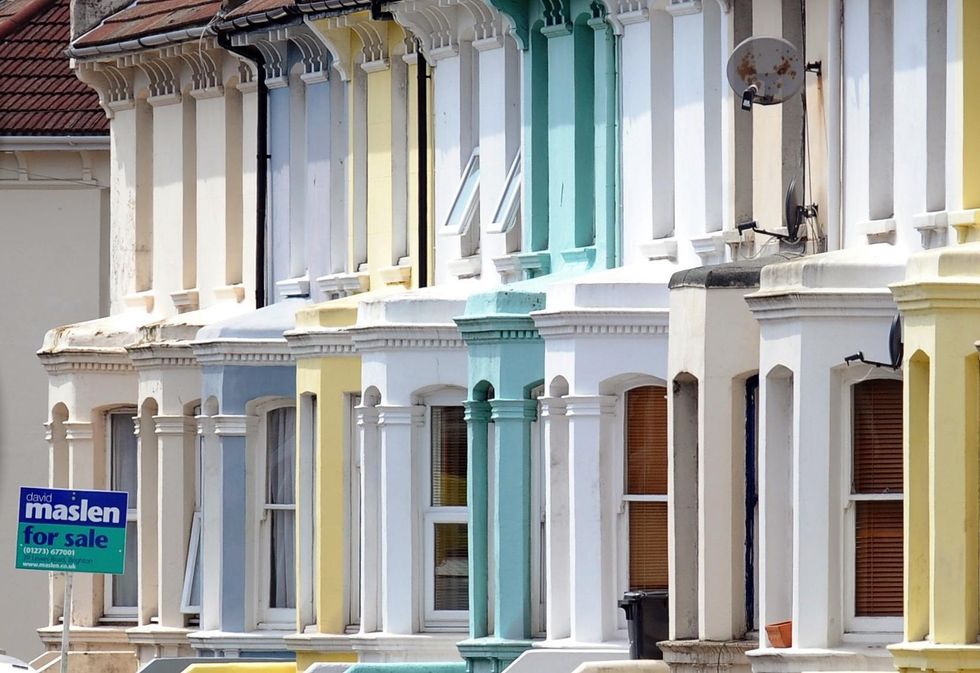The UK average would see homeowners earn £498,687 if they downsize from a five-bed to a three-bed
PA
Chancellor Rachel Reeves has been urged to cut stamp duty for downsizers to free up 3.8 million homes
Don't Miss
Most Read
Trending on GB News
Leading economists have suggested the Chancellor make pensioners exempt from stamp duty to boost the housing housing market.
Many potential downsizers are put off by the costs of moving including the thousands of pounds they face in stamp duty.
Critics argue that without the revision of the policy, it could lead to stagnation and dampen growth, counteracting any economic benefits from the tax revenue.
A key concern is that the policy discourages people, particularly older homeowners, from downsizing. This reduces housing supply, potentially exacerbating the ongoing housing crisis.
The levy brings in a lot of money for the Treasury, with the average bill sitting at £9,000, compared to £6,000 a decade ago.
However, as property transactions plummet, so too has the revenue from the tax. Receipts were forecast to fall from £11.7billion last year to £8.6billion in 2024.
 Future generations of pensioners will be unable to rent if the housing crisis continuesPA
Future generations of pensioners will be unable to rent if the housing crisis continuesPARoger Bootle and James Vitali, economists at the think tank and the report’s authors, said older homeowners are often prevented from downsizing because of stamp duty costs eating into the inheritance they hope to leave their children.
The report said: “If people who benefited from this concession subsequently bought another property, then they would have to pay full duty on not only their new purchase but also the previous one which had carried the stamp duty concession.
“If this stamp duty wrinkle were introduced it would have to be carefully managed. Suppose somebody bought a family house at age 30 and declared that this was their last house purchase and so should be exempt from stamp duty.
“This would act as a deterrent to downsizing later in life. In practice this objection could be overcome by stipulating that the special treatment for last-time buyers only applied to people over a certain age, say 60 or 65.”
The Government is currently short of cash, limiting its room for manoeuvre on tax cuts. However, Vitali said the tax break could even be a benefit for Government finances, as it would stimulate more purchases in the housing market overall.
Barclays’ research found around 85 per cent of owner-occupied homes in the UK have at least one spare bedroom making them “under-occupied”.
Some 1.7 million of these households are open to moving homes in the next two years but the bank said the right incentives could boost this number to 3.8 million.
Currently, stamp duty must be paid on homes worth more than £250,000, or £425,000 for first-time buyers. The rate gradually tapers up, from five per cent to 12 per cent for the most expensive properties.
LATEST DEVELOPMENTS:
A downsizer buying a property for £500,000 faces a stamp duty charge of £12,500, rising to £41,250 for someone buying a £1million home.
Barclays’ report suggests Reeves could offer households grants to incentivise downsizing, or the ability to offset moving costs against stamp duty.
Mark Arnold, Barclays’ head of mortgages said: “A stronger, more holistic strategy is needed to tackle the immense issues faced by the housing market, including the challenges faced in the demand side.”
Labour's plan to not extend stamp duty relief for first-time buyers has also sparked controversy in the UK housing market. Currently, first-time buyers pay no stamp duty on properties up to £425,000, but this threshold is set to drop to £300,000 in March next year.
Reeves has confirmed that Labour will not renew the temporary increase implemented by her predecessor. This decision comes as the Government grapples with a reported £22billion fiscal shortfall.
Recent research reveals significant opposition to Labour's stamp duty plan among homeowners.
A survey conducted by Ready Steady Store found that 70 per cent of homeowners are against the decision to not reinstate stamp duty relief for first-time buyers. Around 69 per cent of respondents believe the reduction in the stamp duty threshold will force first-time buyers to opt for lower-value properties.
This sentiment underscores fears that the policy could limit options for those entering the housing market for the first time.
Mehran Charania, director of Ready Steady Store, commented on the findings: "This latest research is incredibly telling and highlights the level of concern UK homeowners share over the forthcoming autumn budget."
Jason Hollands, managing director at Evelyn Partners, speculates that Labour may focus on addressing root problems: "I suspect [the Government] will instead message that, rather than temporary measures to help people get on the housing ladder, their plans for shaking up the planning system and building 1.5 million new homes will address the root problem facing first-time buyers, namely the undersupply of homes."
Jo Pocklington, of Purplebricks Mortgages, said: “First-time buyers are the lifeblood of the housing market. Their absence from the property buying chain has a knock-on effect on all other movers.
“Removing stamp duty for downsizers should be considered, alongside all other options as part of a suite of solutions to these problems.”
A Government spokesman said: “We do not comment on speculation around tax changes outside of fiscal events.”







